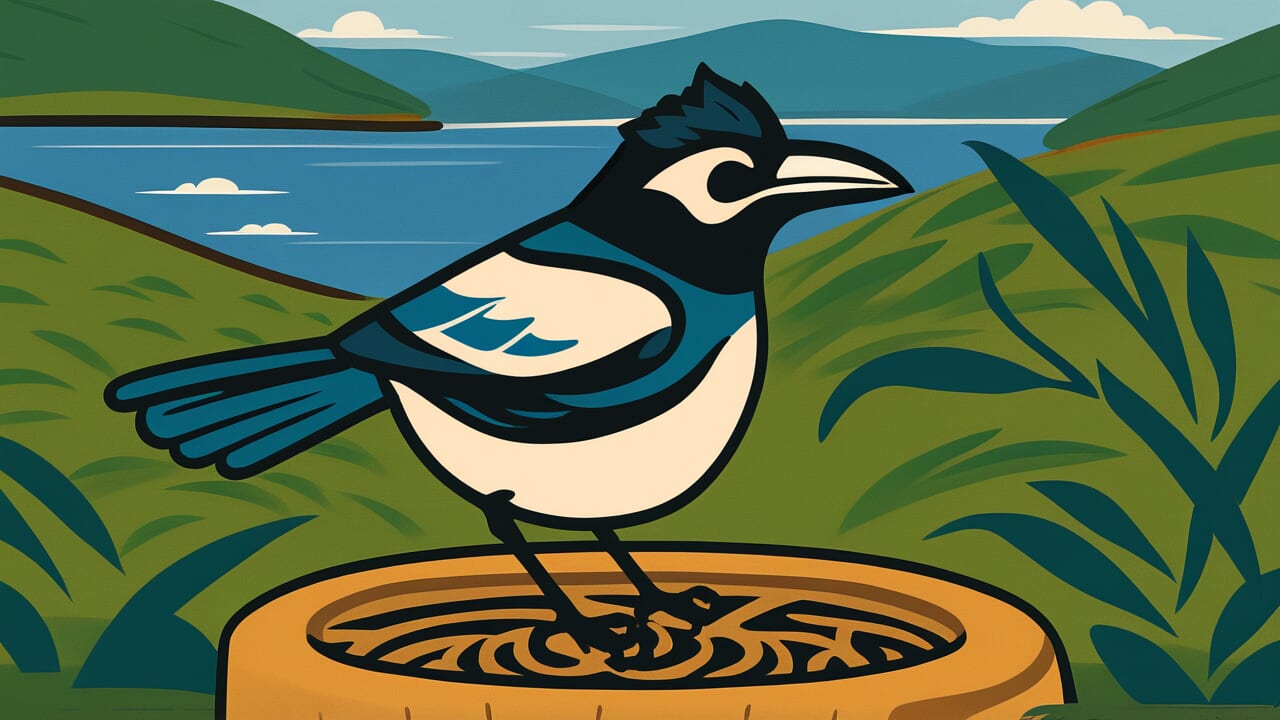How to Read “The magpie knows where the wind rises”
Kasasagi su kaze no okoru tokoro wo shiru
Meaning of “The magpie knows where the wind rises”
This proverb means that wise people can detect signs of change and predict what will happen next.
Just as the magpie knows where the wind will start before it blows, people with sharp insight can predict future events from small clues.
People use this saying to praise someone who notices tiny changes that others miss.
It also emphasizes the importance of foresight. You might hear it when talking about business leaders who sense market shifts early, or politicians who predict social changes.
Even today, this expression teaches us about the value of insight in our fast-changing world.
When information floods around us, the ability to spot real signs of change is true wisdom.
Origin and Etymology
This proverb likely comes from ancient Chinese classics.
The magpie is a bird in the crow family. People in China and Japan have long considered it intelligent.
In China especially, the magpie appears in the Tanabata legend as the bird that builds a bridge across the Milky Way.
The core idea comes from observing that magpies can sense where wind will start before it happens.
Birds are actually sensitive to air pressure changes and air currents. They can detect weather changes faster than humans can.
People believed magpies would adjust their nest positions or move to safer places before winds began.
Ancient people carefully watched how animals behaved. They learned much wisdom from nature.
From the magpie’s behavior, they understood that wise people should develop the ability to read signs of change.
The magpie sensing invisible wind before it arrives became the perfect symbol for someone with foresight.
This image eventually crystallized into the proverb we know today.
Interesting Facts
In Japan, magpies mainly live in Kyushu, the southernmost main island.
This region has long had active exchanges with the Asian continent. This suggests the proverb itself was strongly influenced by continental culture.
Magpie nests are known for their elaborate construction. They’re built to withstand wind and rain.
The birds skillfully weave branches together. Some observers report the design seems to calculate wind patterns.
No wonder ancient people noticed the magpie’s wisdom.
Usage Examples
- He predicted this major shift from small industry changes. The magpie knows where the wind rises, as they say.
- That investor has the ability described in “the magpie knows where the wind rises.” She’s always one step ahead of market movements.
Universal Wisdom
This proverb has survived through generations because the power to predict has always been crucial for human survival and prosperity.
From ancient times to today, a huge gap exists between those who can read signs of change and those who cannot.
What’s interesting is that this proverb doesn’t focus on supernatural prediction.
Instead, it emphasizes observation skills and insight. The magpie doesn’t use magic to predict wind.
It succeeds through sharp senses that detect tiny changes in nature. The proverb values careful observation over natural talent.
Humans instinctively fear uncertainty. Not knowing what tomorrow brings has troubled us since ancient times.
That’s why people who can see ahead have always been respected. Their wisdom has always been valued.
But this proverb also teaches humility. Even the wisest person, like the magpie, is just part of nature.
We all live within larger flows we cannot fully control. Perfect prediction is impossible.
That’s why we must keep learning and observing constantly.
When AI Hears This
The magpie’s wind prediction is remarkable because it practices what complexity science calls “reverse emergence.”
Usually, emergence means small elements combine to create unpredictable large phenomena. Water molecules forming a vortex, for example.
But the magpie does the opposite. It reads signs of coming large-scale phenomena like storms from tiny local conditions.
It detects changes of just a few hectopascals in air pressure or subtle humidity increases.
This represents a biological system that has built “sensitivity to initial conditions” from chaos theory into its survival strategy.
In weather systems, a 0.1 degree temperature difference can determine whether a storm forms days later.
The magpie evolved sensors to detect these tiny differences. It converts them into outputs like changing nest structure or location.
What’s fascinating is the contrast with human weather prediction. We need massive data and supercomputers.
Yet the magpie achieves similar prediction accuracy using only its body as a “local observation point.”
This is a biological implementation of “embedding theorems.” You don’t always need to see the whole complex system.
Appropriate local information is often enough. Intelligence isn’t about information quantity.
It’s about choosing which information to pay attention to.
Lessons for Today
This proverb teaches modern people to develop eyes that see the essential truth amid floods of information.
Today, countless pieces of information fly around on social media and news. Reacting to everything will exhaust you.
Like the magpie, you need selective attention. Sensitively detect only the truly important signs of change.
Start by building a habit of noticing small daily changes. The atmosphere at work, people’s expressions, subtle market movements.
Don’t get distracted by surface information. Try to sense the currents flowing beneath.
This attitude will sharpen your insight.
Remember that the power to predict isn’t for outsmarting others. It’s for better preparation.
The magpie knows the wind to protect its family and ensure safety.
Use your insight for your own happiness and the happiness of those around you.
Don’t fear change. Instead, have the wisdom to prepare for it.
That’s the message this proverb wants to convey across the ages.



Comments